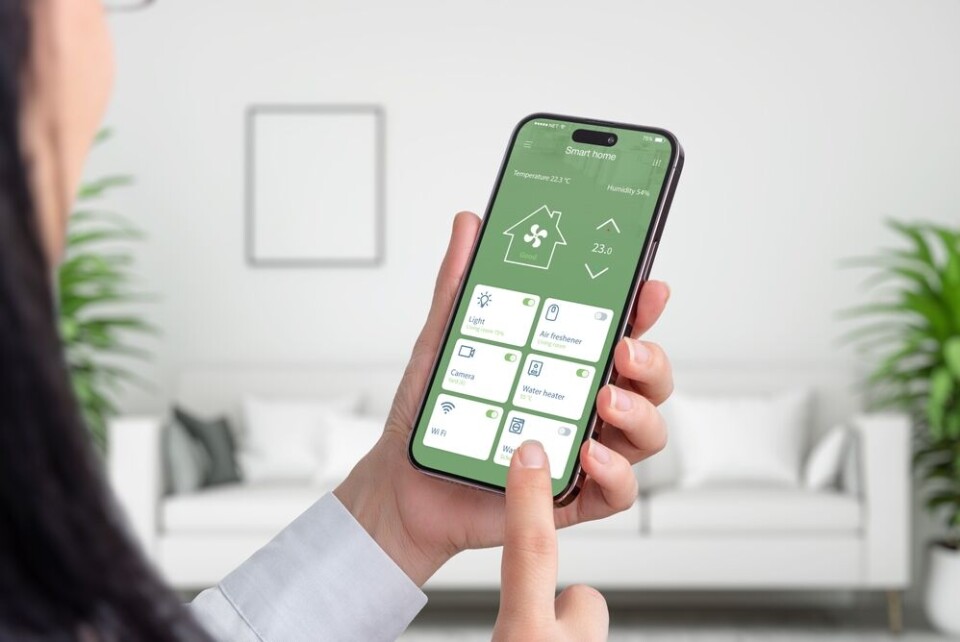-
Why you may see a low-flying helicopter near you in west France
Residents of the Loire-Atlantique region may spot the aircraft until at least the end of May
-
Price drops for French mobile contracts - which offer cheapest deals now?
The average price for a package has fallen by 10% in the past year
-
Group purchase offer for wood pellets launched by French consumer association
Highly competitive prices pledged with applicants given a quote they can choose to take up (or not)
Your smartphone can cut energy bills by 25%, says French tech expert
Most homeowners already have the technology on their phones to manage heating and household appliances but do not use it

Property-owners are missing out on considerable energy savings by not using smart technology to regulate temperatures in the home, a leading expert has warned.
François-Xavier Jeuland, vice-president of the Smart Buildings Alliance, said most people already have the technology on their smartphones.
“We were all very impressed when France reduced its electricity consumption by 9% last winter,” Mr Jeuland told The Connexion, “but I am convinced the average household can reduce consumption further, both in winter and summer, by using technology that many people are simply not aware of.”
Read more: Aid announced for people to buy radiator thermostats in France
Most fairly new hot water tanks can already be connected
Mr Jeuland singled out hot water, which typically accounts for 30% of all electricity used in the home, and heating as the main areas where savings can be made.
“By using piloted technology – that is, being able to change the temperature settings and timings easily using a smartphone, studies by the environmental agency Ademe show savings of 15% in electricity use,” he said.
“Most fairly new hot water tanks can already be connected, but people don’t know this, or don’t think they can set them up.”
Both Android and Apple smartphones have a ‘Home’ app to control electrical products, but few people use it.
“Often it is just a case of pointing the phone at a QR code while using the app,” Mr Jeuland said.
If other items in the house, such as fridges, washing machines, lights and even kettles are linked to the app, another 5% can be saved, he claimed.
Read more: French renovation grant to target old gas boiler replacement
Algorithms help prepare for a cold snap or heatwave
The same saving can be made again using predictive algorithms if information is shared online – using weather reports, for example, to prepare a house in advance for a cold snap.
“That’s 25% in savings right there,” Mr Jeuland said.
He added that investment in technology such as automatic windows and shutters will also pay off.
“During heatwaves, for example, it often gets cooler at 3:00 or 4:00,” he said.
“Opening a downstairs and upstairs window will draw hot air out of the house and replace it with cool air, but because it is the middle of the night and everyone is sleeping, it is not often done.
“The Romans used to do it, using slaves. We can do it with technology, and now it costs much less than it used to.”
‘If a plumber refuses to install a smart boiler, look elsewhere’
He said tradespeople need to catch up with technology too.
“There’s this idea that it still involves lots of work – cables in the wall, special expensive equipment, a minimum bill of €25,000 – but that is no longer the case.
“If, when you have a new hot water system installed, the plumber says you cannot control it from your smartphone, look elsewhere because almost every tank can be.
“A good plumber knows this and will even set up the customer’s smartphone if they cannot do it themselves.”
While Mr Jeuland acknowledged that better insulation will also help reduce energy bills, he said the costs, even with government grants, were often prohibitive.
“But homeowners can replace old electric equipment with modern, smart-controlled systems for the same price as the old equipment cost new,” he said.
Related articles
The official French app that makes buying or selling a used car easier
How to get financial help to repair a smartphone in France
French towns introduce ‘smart’ street lights which locals can turn on
























